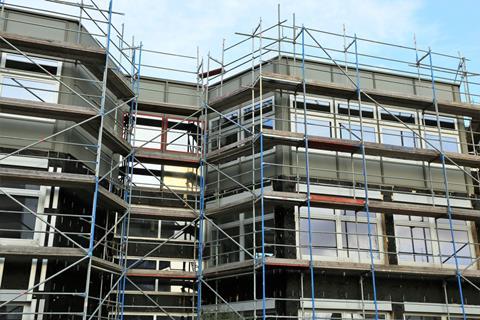House builders react to budget announcements
The £2bn cladding tax confirmed in the budget yesterday and other costs could combine to stifle investment in new homes, the Home Builders Federation has warned.
The HBF, reacting to news that the cladding tax will be set at 4% on profits above £25million, voiced concern over a range of increased costs coming down the line for the housebuilding sector.
A spokesperson for the HBF said: “This new tax should be seen in the context of a raft of other new levies, taxes and regulatory costs on home building that various Whitehall departments are introducing, the cumulative impact of which could threaten site viability and stifle investment in new developments and employment.”

In addition to the £2bn residential development property tax, the house building and residential property sector is facing estimated transitional costs of £731m in moving to the new building safety system, with an ongoing annual regulatory burden of £284m thereafter, according to the government’s impact assessment.
The costs would add up to a bill of more than £3bn over the next decade.
A further “Gateway 2” levy expected to be paid by developers at the point of planning permission for high-rise buildings under the Building Safety Bill, and this is on top of rising inflation and increased rates of corporation tax.
The warnings come as real estate services firm Sirius Property Finance published rough estimates of the likely cladding tax bills for the largest housebuilders, with Persimmon and Barratt paying £40.6m and £35.3m respectively.
See also>>The £2bn cladding tax: the likely impact on housebuilders
The HBF spokesperson added: “In particular these new costs and taxes will bite hardest in Northern England and the Midlands where the industry is keen to invest and support the important levelling up agenda.
“Many of these new costs have sound logic but are being brought forward without an appreciation of the whole picture.”
He added however that major house builders agree the sector needs to play its part in reducing remediation costs for leaseholders, and has set aside a billion pounds to support the work.
He added: “The companies targeted by this tax built only a small fraction of affected buildings with many more the responsibility of overseas developers and long dissolved companies.
“Other sectors and responsible parties will not be subject to any similar super taxes.”
See also>>Autumn budget: Sunak’s £24 billion housing settlement at-a-glance











No comments yet